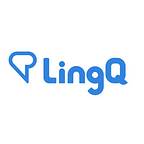Common German Slang Words for Beginner Learners
They always say that the best way to learn in an immersion environment is to make friends with the locals.
Just head off to Munich and start meeting people!
If anything’s more deserving of the phrase “easier said than done,” I’d like to know.
Not only is it hard to jump into new social circles, your language skills are constantly going to be put to the test when you’re trying to hang out with native speakers. That’s kind of the point!
And nobody wants to hang out for long with someone who speaks like a textbook. Your language doesn’t have to be perfect, but it’s got to be natural.
For that, you’re going to need some German slang.
Word on the Street
Krass — Like me, you may think of “krass” as a direct cognate or even loanword of the English “crass.” But that’s not the case. Think of it more like “wild” or “unbelievable.” As an interjection, it can take the place of English “No way!” or “Whoa!”
Und dann sind die Polizei gekommen! Wie krass war dass den?
Then the police came! How crazy was that?!
Alter — Your textbook will give you two definitions for this word — and neither is the same as the English “to alter,” I’m afraid. Instead, as an adjective it means older, and one sense of the noun is “age” as in “a ripe old age.”
Informally, though, it means something remarkably close to “dude.” A term of affection or a way to get the attention of a male friend.
Alter! Was war der Name von der neuen Bar?
Dude! What was the name of that new bar?
At the same time, it’s also an expression of surprise.
Alter! So teuer!
Man! So expensive!
By the way, if you find yourself in Vienna, you can instantly win major points with the locals by using the word Oida! instead. Same meaning, same usage!
Online German Slang
Let’s be realistic here — if you happen to be learning German at home, you may not have so many opportunities to loudly call Oida! across the room.
Most of the German content you experience is likely to be things you read online.
So it would make sense to learn some of the more informal constructions and even abbreviations that you’re likely to see in casual online German.
mMn — Short for meiner Meinung nach…
This is just a simple way to express “in my opinion…” Sometimes you’ll see it without the middle M capitalized, and you may (like me) think at first that someone dropped something on their keyboard.
sie ist mmn eine perfekte schauspielerin.
In my opinion, she’s a perfect actress.
zl;ng — This one does have its roots in English, which is pretty obvious when you see the translation: zu lang; nicht gelesen. (too long, not read).
mensch, du hast ein echtes aufsatz geschrieben. zl;ng
Dude, you practically wrote an essay. TL;DR.
Note that my informal German examples are written without any capitalization at all. Just like in English, that’s considered a bit too informal for online forum postings, but for chats and texts it’s perfect.
Conclusion
Since I didn’t want this article to be zl;ng, I cut it off here instead of diving into the huge world of German slang that’s out there. Start with the ones I mentioned above and you’ll soon start to realize German isn’t that hard to learn.
Once you’ve got the above slang words down packed, you’re going to need a lot more German input in order to progress to the next stage.
That’s where a website like LingQ comes in: authentic and entertaining native material in German, arranged according to your level so that you’re always learning exactly what you need.
In fact, you can even import the expressions I mentioned into LingQ and study off them in a more effective manner.
Try out the German material today!
***
Originally published at www.lingq.com
